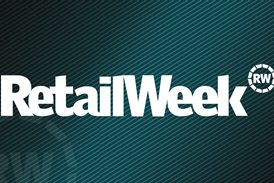Shein’s head of strategic and corporate affairs in North America, the UK and Europe Peter Pernot-Day said there are “misperceptions” around the way the fast-fashion retailer operates, specifically in relation to tax loopholes, as he claims “we don’t cheat, we compete” at LIVE 2025: Retail Week x The Grocer.

Speaking at the ‘Behind the Scenes at Shein’s session at LIVE 2025, Pernot-Day spoke to delegates about the fast-fashion retailer’s journey, purpose and practises as a business in today’s market.
“Shein was founded around a simple premise – how do you make fashion accessible to everybody? How do you create a system that can be dynamic enough to meet the needs of customers around the world with trendy items, high-quality clothing that is safe and affordable? These are the questions that animated our founders and continue to drive our company as we expand and grow into new markets, as we capture new customers and find commercial purpose.
“There are a lot of questions about our company and we are aware of that. People want to know how you are able to achieve the price points you are able to achieve, how you are able to offer so much variety in so many markets, and how you are able to enter those markets. The answer to those questions is something we call the on-demand business model.”
He said the business has a “unique” and “innovative” approach to traditional ecommerce players and noted the efforts of its designers across the world including in the likes of South Korea and in the UK in Manchester, to understand and surface both macro and micro fashion trends.
Noting the questions that surround Shein when it comes to high-volume production and business practises, he added: “We have not been as transparent in the past but that is beginning to change and what we’ve done is publish an annual ESG report for the last three years.
“Other issues that we’re often asked about are ‘tell us about your supply chain, you have these capabilities to do this just in time for manufacturing, how does your supply chain work? How do you pay attention to it?’, and I think to me this is the analogue part of the business and this is where the rubber really meets the road for us.
“Without our supplier partners, we would not be able to deliver the business as we do today. Working with those supplier partners is critical. We have 5,400 contracted manufacturers around the world located in South Eastern China, Brazil and Turkey, and these contract manufacturers are trusted and audited partners.”
Pernot-Day detailed how audits are designed to look at labour practises, the physical safety of plants, wage per hour and concerns over inappropriate labour practises including forced or child labour. He said Shein reports on all of these factors in its annual ESG report as it “tries to drive change” to make it both “more responsible” and “safer” for customers moving forward.
With an eye to the speculated “tax loopholes” that Shein targets, Pernot-Day called it a “misperception”.
He said: “I think there is a misperception that our pricing advantage and our speed advantage are derived from us dodging tax loopholes or avoiding duties or things of that nature, and I’m here to tell you that we do not rely on customs policy to be successful.
“What we have relied on and what will continue to be our North star as a business is customer centricity by giving customers what they want and building a technological and production stack to do that.
“The way I put it to my team is that we don’t cheat, we compete, and we are here to compete fairly and call for a level playing field so that the entire industry can compete together to hopefully make British consumers, American consumers, and consumers in the European Union happy with the clothes they can wear.”


























No comments yet